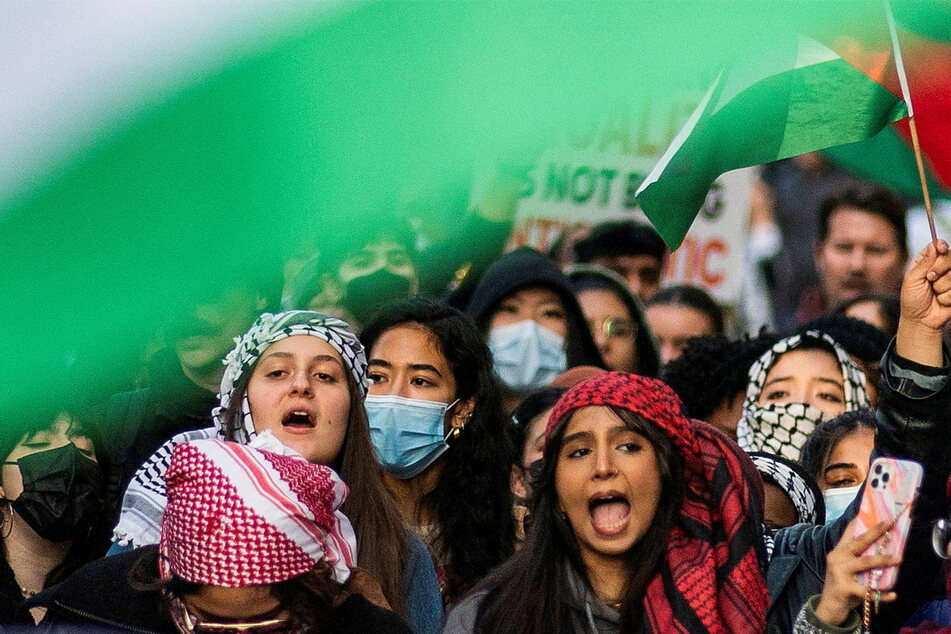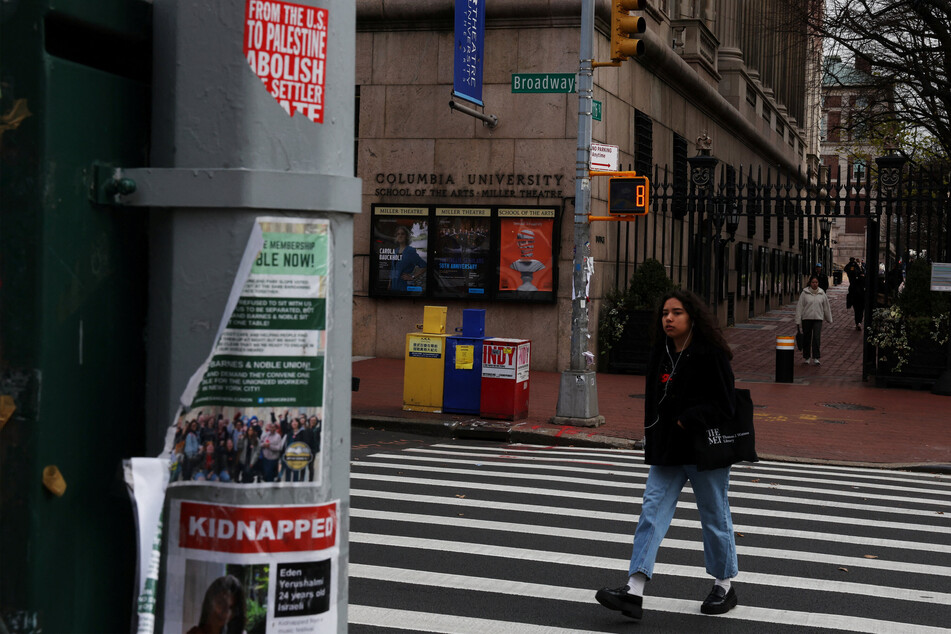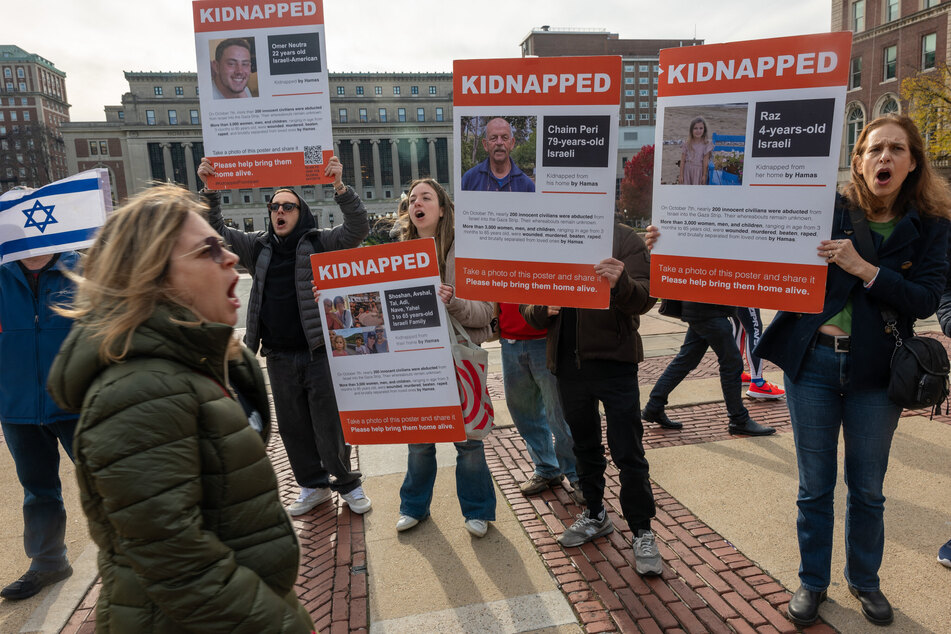Columbia University sees Israel-Gaza war protests rock "highly charged" New York City campus
New York, New York – Since the eruption of the Israel-Gaza war, New York's Columbia University has been gripped by divisions over the conflict and rancor over where free speech ends and hatred begins.

Noisy campus protests in Manhattan's Morningside Heights have become regular events, with hundreds of students, some wearing keffiyeh headscarves and flying the distinctive Palestinian colors, calling for an end to the fighting in Gaza.
Aiming to eliminate Hamas after it attacked Israel on October 7, killing about 1,200 people, mostly civilians and taking hostages, Israel launched a retaliatory offensive in Gaza that has killed 18,787, according to the Hamas-run territory's health ministry.
"From the river to the sea, Palestine will be free," chant some students, invoking the controversial call that some claim calls for Israel's destruction. Others take it as a demand for Palestinians to be liberated from occupation.
Nearby, a small group of pro-Israeli counter-marchers hold aloft the blue and white Star of David flag of the close US ally, dancing as a soundsystem blares.
The prestigious private university, which was a hotbed of student protest against the Vietnam War in the 1960s, has once again been thrust into the spotlight over free speech on campus since the October 7 attacks.
Lively debate about the situation in the Middle East has a long history at the institution, where Palestinian-American thinker Edward Said was a lecturer.
In 2020 students voted in favor of divesting from Israel, which was rejected by the university's management, which has an exchange program with a Tel Aviv-based institution.
Since October 7, Pro-Palestinian groups on campus have been accused of fanning the flames of antisemitism, which they deny, countering that the school's administration is pro-Israel, which it rejects.
What is happening at Columbia University amid the Israel and Gaza war?

Joseph Howley, an associate classics professor, supported the boycott of Israel and said that there was now an unprecedented level of "unease or tension" among faculty in the wake of the newly invigorated pro-Palestinian protest movement.
Following several heated encounters between opposing groups of protesters, two pro-Palestinian student groups were temporarily suspended in November for breaches of university rules. They were specifically singled out for staging a gathering that gave space to what the university said was "threatening rhetoric and intimidation."
English and gender studies professor Jack Halberstam said he had never seen "so much effort going to the suppression of speech on campus" at Columbia.
The academic said that the severity of the administration's response was motivated by allegations it was stirring up antisemitism, and pressure from donors.
At the end of October, Laura Rosenbury, head of Columbia's women-only Barnard College, said she was "appalled and saddened to see antisemitism and anti-Zionism spreading throughout Barnard and Columbia."
She added that she was "appalled and saddened by the anti-Palestinian and anti-Muslim rhetoric on our campus".
But Halberstam said that conflating anti-Zionism and antisemitism made open debate "almost impossible".
"If you can't critique a state that is conducting illegal military operations along its borders, and against a civilian population, then we've moved into some new era of suppression of freedom of expression," he said.
Columbia University grapples with "highly charged" campus amid Israel and Gaza fighting

While defending free speech, co-director of Columbia's Institute for Israel and Jewish Studies Rebecca Kobrin said there was unease among Jewish students. Slogans like "from the river to the sea" struck some as a "call for violence," she added.
In the wake of the brutal Hamas attacks on Israelis, the response by the Students for Justice in Palestine group provoked a backlash when it called the slaughter "an unprecedented historic moment for the Palestinians of Gaza". It described the attack as "a counter-offensive against their settler-colonial oppressor." An open letter followed from faculty members, some of whom were outraged that Hamas' "barbaric attack on Israeli civilians" had not been mentioned by the pro-Palestinian group.
Others came to the defense of the young activists, some of whom had their faces and names broadcast around campus labelled as "antisemitic".
Howley, the classics lecturer, said "the loss of life, and the violence on October 7, was terrible, and is to be condemned."
"(But) having grown up and formed my political commitments in the shadow of September 11, and the (US) war on terror, I found myself very sensitive to, and very concerned about, a political response that immediately targeted young activists and sought to shame them or discipline them for not using exactly the right words."
Columbia University itself pointed to a statement explaining that since October 7 "the atmosphere on Columbia's campus has been highly charged" and that steps had been taken to boost security and better manage the organization of events.
Cover photo: Collage: SPENCER PLATT / GETTY IMAGES NORTH AMERICA / GETTY IMAGES VIA AFP & REUTERS

